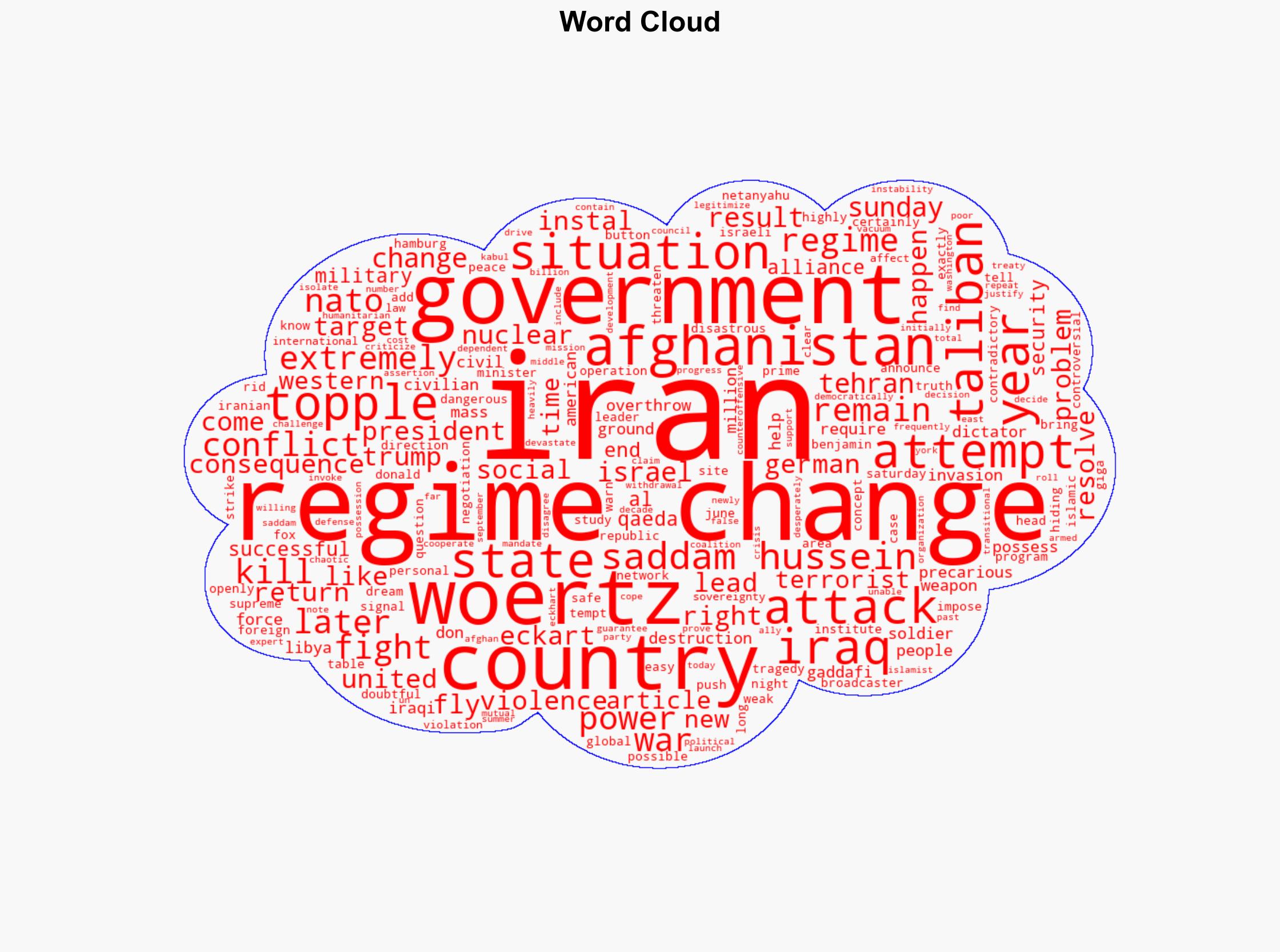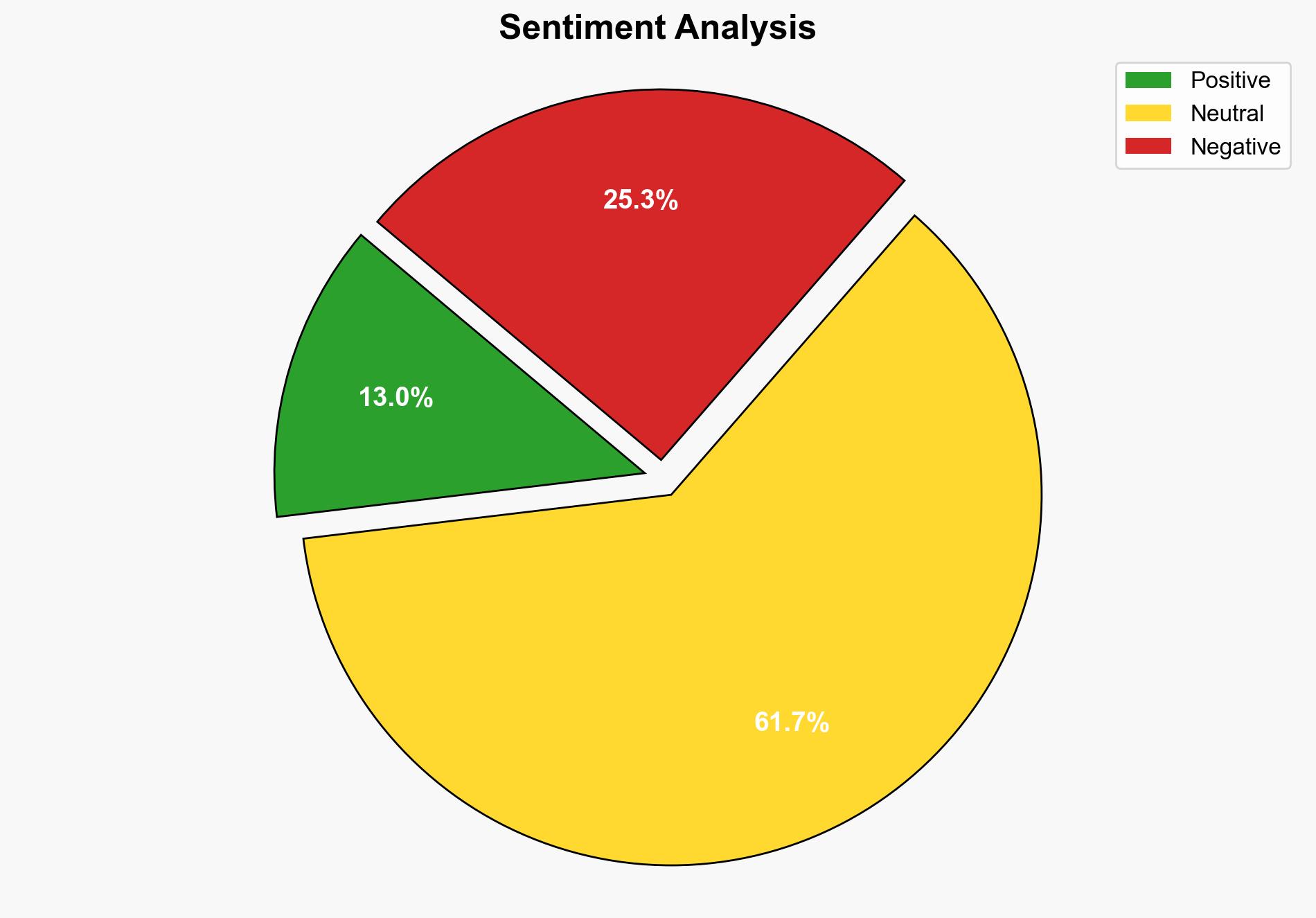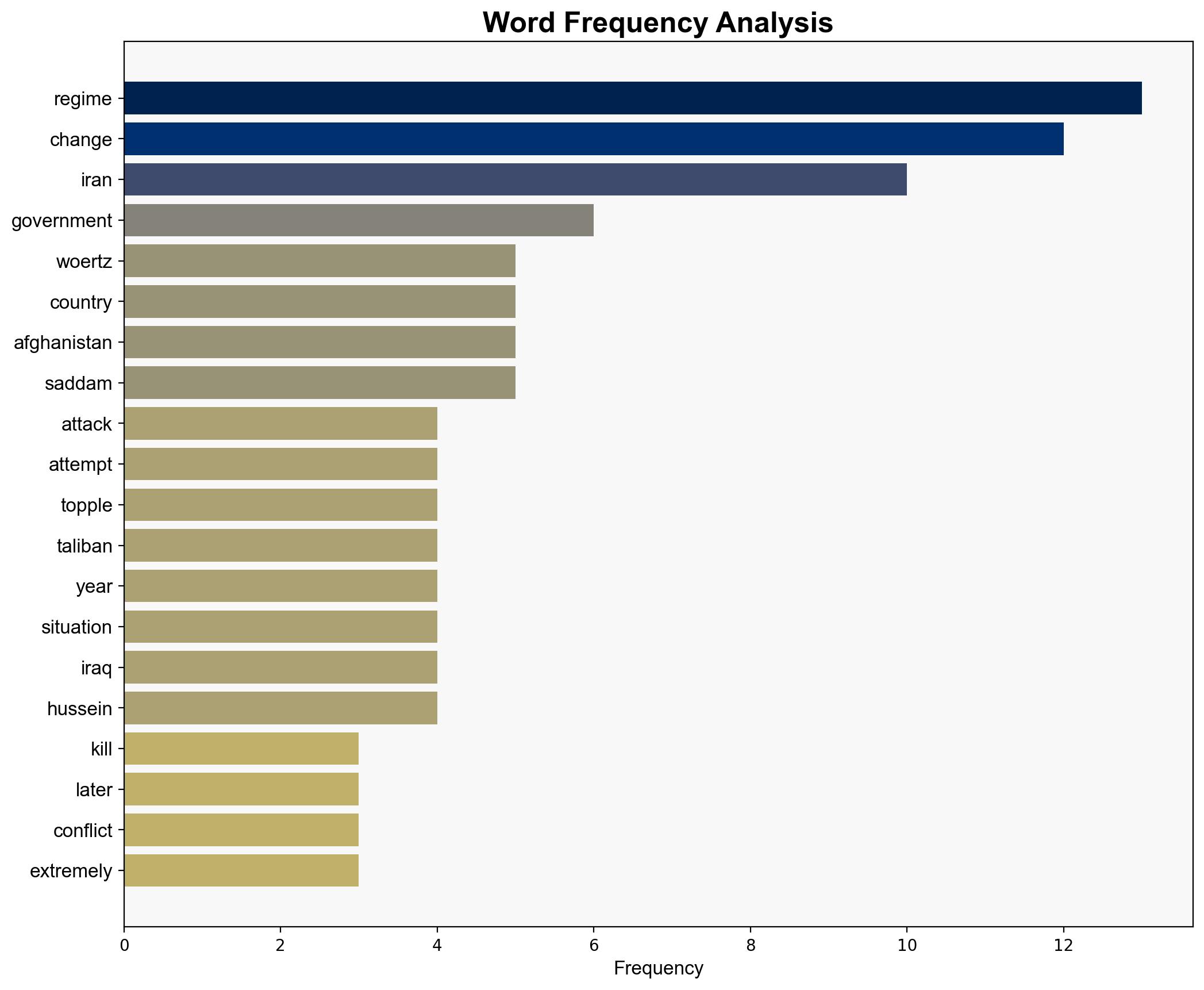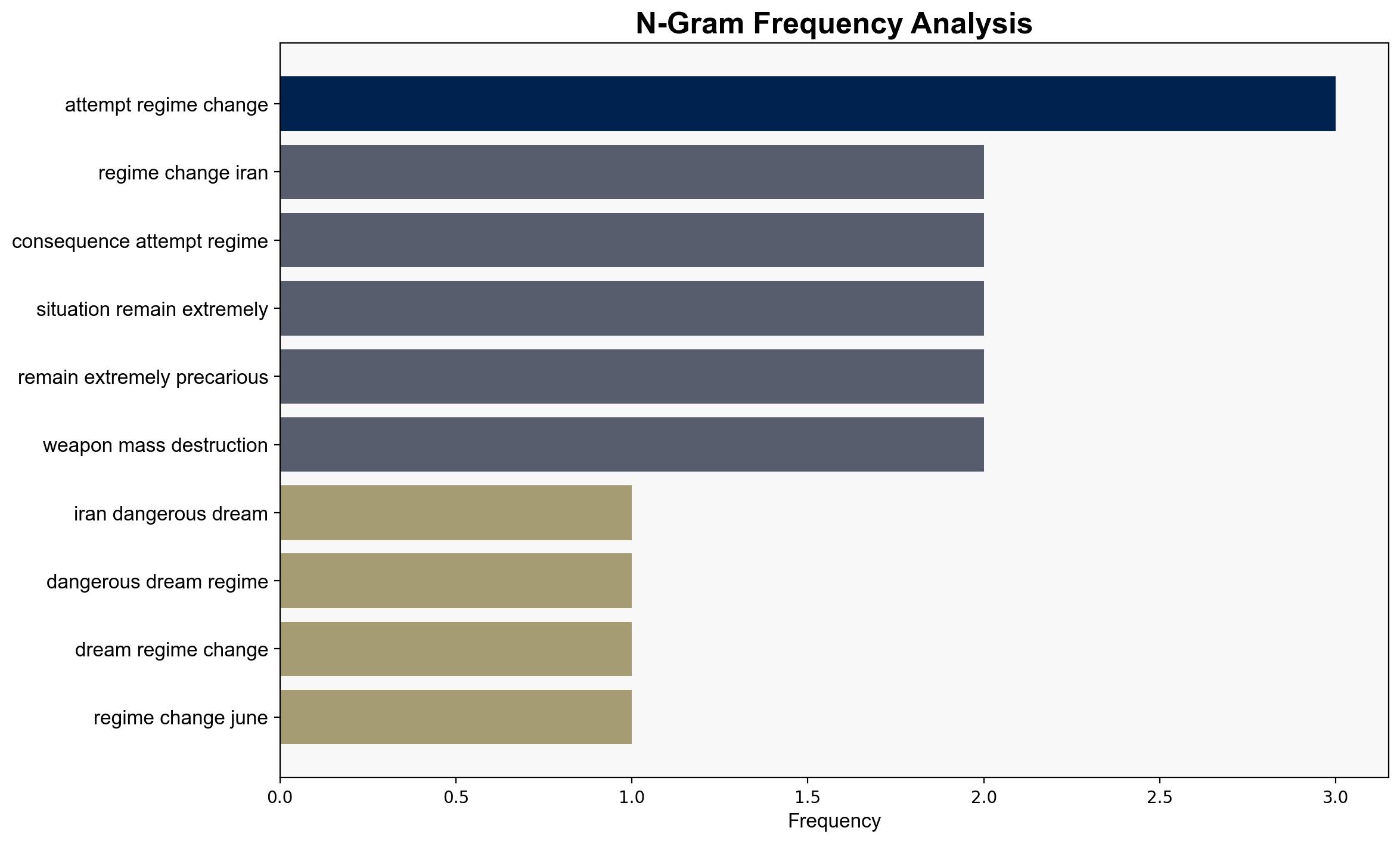Iran The dangerous dream of regime change – DW (English)
Published on: 2025-06-21
Intelligence Report: Iran The Dangerous Dream of Regime Change – DW (English)
1. BLUF (Bottom Line Up Front)
The prospect of regime change in Iran poses significant geopolitical risks, with potential for widespread instability and conflict. Historical precedents in Afghanistan, Iraq, and Libya illustrate the challenges and unintended consequences of externally driven regime change. The report recommends cautious diplomatic engagement and multilateral approaches to address nuclear and regional security concerns.
2. Detailed Analysis
The following structured analytic techniques have been applied to ensure methodological consistency:
Causal Layered Analysis (CLA)
Surface events indicate heightened rhetoric and military posturing. Systemic structures reveal entrenched geopolitical rivalries and regional power dynamics. Worldviews are shaped by historical grievances and ideological divides. Myths perpetuate narratives of resistance and sovereignty.
Cross-Impact Simulation
Potential regime change in Iran could destabilize neighboring states, disrupt global oil markets, and exacerbate sectarian conflicts. Economic dependencies on Iranian oil and regional trade could amplify these effects.
Scenario Generation
Scenarios range from peaceful diplomatic resolutions to escalated military interventions. Each scenario presents distinct challenges and opportunities for regional and global actors.
Network Influence Mapping
Key actors include regional powers, international coalitions, and non-state entities. Influence relationships highlight the interconnected nature of regional security and economic stability.
3. Implications and Strategic Risks
The pursuit of regime change in Iran could trigger a cascade of regional conflicts, economic disruptions, and humanitarian crises. Cybersecurity threats and military escalations are potential risks. The power vacuum could empower extremist groups, leading to further instability.
4. Recommendations and Outlook
- Engage in multilateral diplomacy to address nuclear proliferation and regional security concerns.
- Strengthen cybersecurity defenses to mitigate potential threats from state and non-state actors.
- Scenario-based projections:
- Best Case: Diplomatic resolution and regional cooperation lead to stability.
- Worst Case: Military conflict and regional destabilization result in humanitarian crises.
- Most Likely: Continued tensions with periodic diplomatic engagements.
5. Key Individuals and Entities
Benjamin Netanyahu, Donald Trump, Eckart Woertz, Muammar Gaddafi, Saddam Hussein
6. Thematic Tags
national security threats, cybersecurity, counter-terrorism, regional focus




